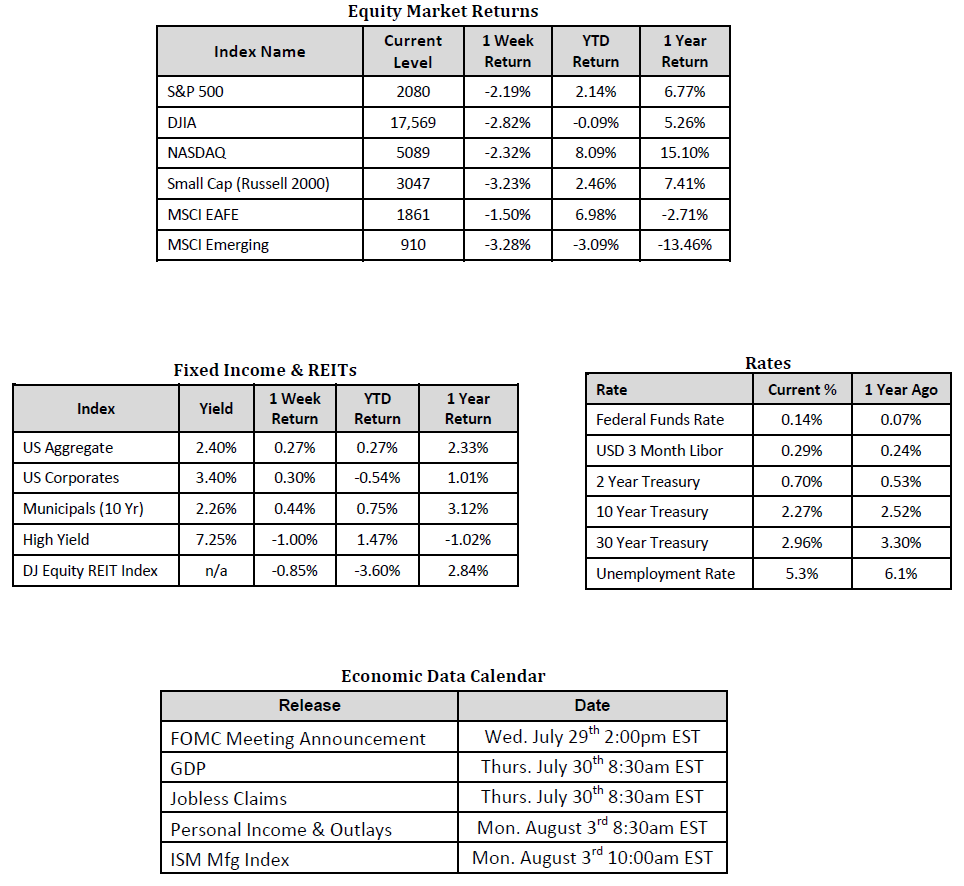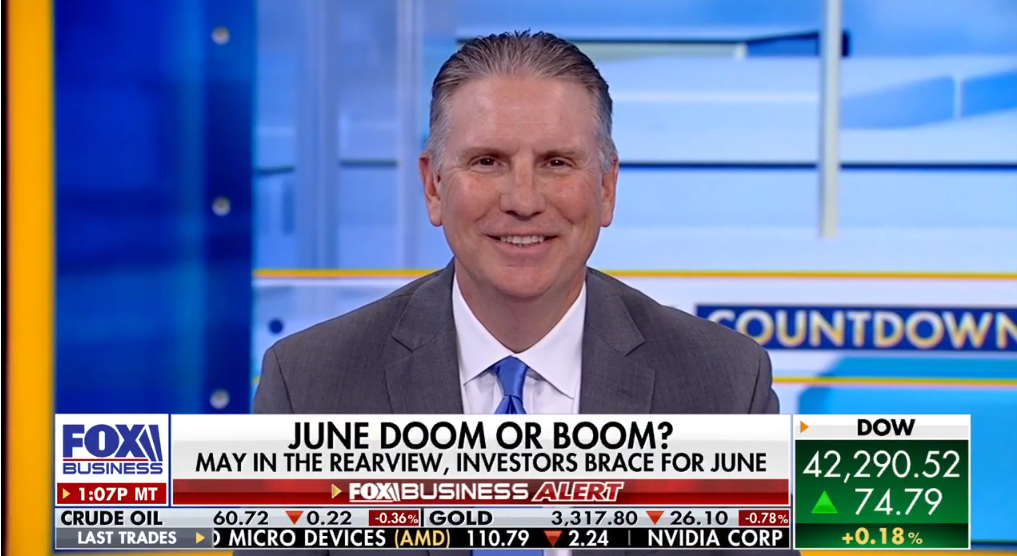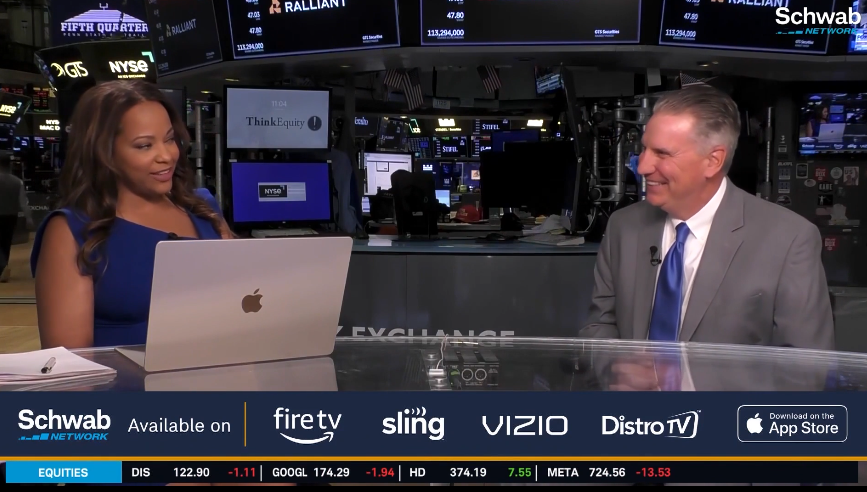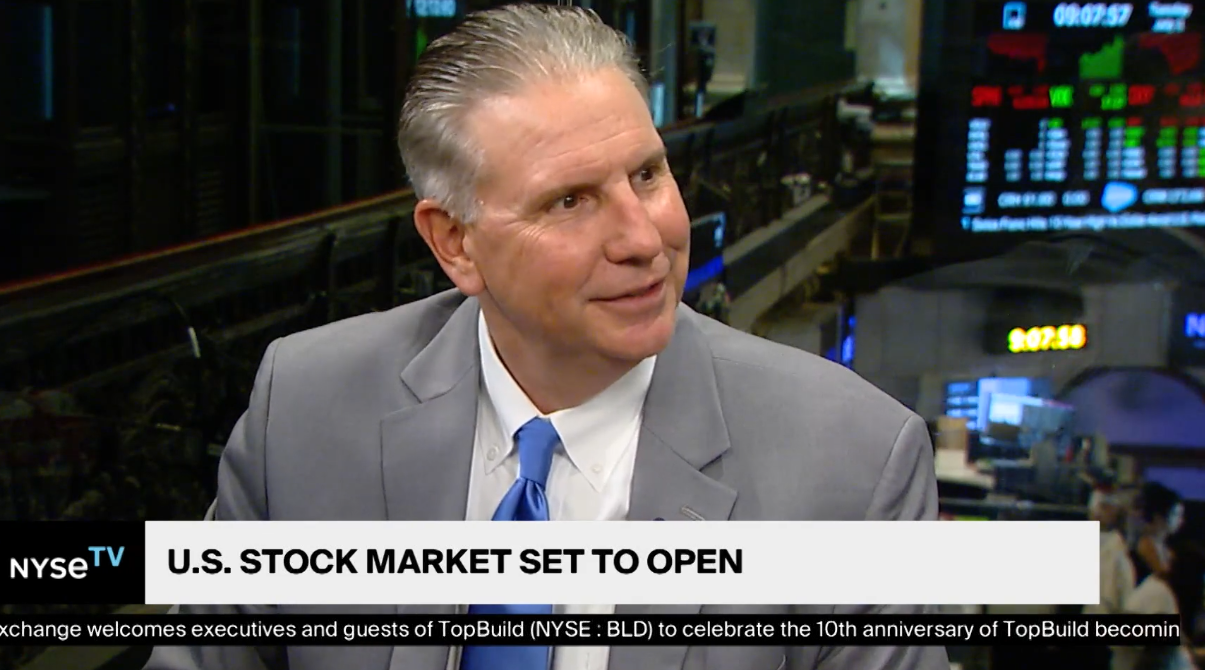
What China’s Stock Market Selloff Means for U.S. Investors
Market Overview
Happening Now
The Chinese stock market has caught the attention of investors around the world due to the sharp fall and subsequent increase in volatility witnessed since the beginning of June. The Shanghai Stock Exchange Composite Index (SSE), after gaining over 42% over the first five months of the year fell over 32% from the all-time high of 5,166 reached on June 12, to a low of 3,507 on July 8. The Chinese Securities Finance Corporation, the institution responsible for providing margin financing, stepped in to stop the rout and announced on July 5 that they’d be purchasing stocks in an attempt to provide stability to the market. This unprecedented step allowed the market to recover almost 18% over the course of the next two weeks, until this past Monday when markets plunged 8.5% in a single day and went on to extend losses during Tuesday’s trading. The reason for the largest single day loss since the financial crisis was rumors that China would be pulling back some of the stability measures put in place weeks prior.
So what does this mean for the individual investor in the U.S.? Well, that all depends on the investor’s exposure to mainland Chinese equities, or “A-Shares.” Until this past November, foreign investors were unable to invest directly in Chinese stocks and even now face significant restrictions when doing so. For example, according to the Wall Street Journal, investors are required to place their buy and sell orders one day in advance and are capped at investing no more than $49B. Due to these restrictions and the short window of time that institutions have been able to participate in Chinese A-Shares, many funds that track “Chinese Equities” are actually investing in stocks listed on Hong Kong Stock Exchange (HKEx) and not the SSE. The reason this is significant is because while the SSE has fallen 32% from the June 12 peak to the July 8 trough, the HKEx has only fallen 14% over that same time period.
To understand how individual investors may be impacted consider the top two China exchange traded funds (ETFs) by assets, which account for almost 70% of the dollars invested in ETFs that track Chinese stocks. The iShares China Large-Cap ETF, FXI, and the iShares MSCI China ETF, MCHI account for $9.2B of the $13.2B in ETF assets under management and over 99% of their underlying holdings are invested in stocks that trade on the HKEx.
While the increase in Chinese stock market volatility has provided fodder to the headline driven media mill, the direct exposure many investors have to China A-Shares appears limited due to the inaccessibility of their markets and institutional ownership of Hong Kong listed securities. None the less the recent market environment in China highlights importance of understanding the underlying holdings within mutual and exchange traded funds.
Sources: Equity Market, Fixed Income and REIT returns from JP Morgan as of 7/24/15. Rates and Economic Calendar Data from Bloomberg as of 7/27/15.
Important Information and Disclaimers
Disclosures: Past performance does not guarantee future results. We have taken this information from sources that we believe to be reliable and accurate. Hennion and Walsh cannot guarantee the accuracy of said information and cannot be held liable.
Investing in foreign securities presents certain risks not associated with domestic investments, such as currency fluctuation, political and economic instability, and different accounting standards. This may result in greater share price volatility. These risks are heightened in emerging markets.
There are special risks associated with an investment in real estate, including credit risk, interest rate fluctuations and the impact of varied economic conditions. Distributions from REIT investments are taxed at the owner’s tax bracket.
The prices of small company and mid cap stocks are generally more volatile than large company stocks. They often involve higher risks because smaller companies may lack the management expertise, financial resources, product diversification and competitive strengths to endure adverse economic conditions.
Investing in commodities is not suitable for all investors. Exposure to the commodities markets may subject an investment to greater share price volatility than an investment in traditional equity or debt securities. Investments in commodities may be affected by changes in overall market movements, commodity index volatility, changes in interest rates or factors affecting a particular industry or commodity.
Products that invest in commodities may employ more complex strategies which may expose investors to additional risks.
Investing in fixed income securities involves certain risks such as market risk if sold prior to maturity and credit risk especially if investing in high yield bonds, which have lower ratings and are subject to greater volatility. All fixed income investments may be worth less than original cost upon redemption or maturity. Bond Prices fluctuate inversely to changes in interest rates. Therefore, a general rise in interest rates can result in the decline of the value of your investment.
Definitions
MSCI- EAFE: The Morgan Stanley Capital International Europe, Australasia and Far East Index, a free float-adjusted market capitalization index that is designed to measure developed-market equity performance, excluding the United States and Canada.
MSCI-Emerging Markets: The Morgan Stanley Capital International Emerging Market Index, is a free float-adjusted market capitalization index that is designed to measure the performance of global emerging markets of about 25 emerging economies.
Russell 3000: The Russell 3000 measures the performance of the 3000 largest US companies based on total market capitalization and represents about 98% of the investible US Equity market.
ML BOFA US Corp Mstr [Merill Lynch US Corporate Master]: The Merrill Lynch Corporate Master Market Index is a statistical composite tracking the performance of the entire US corporate bond market over time.
ML Muni Master [Merill Lynch US Corporate Master]: The Merrill Lynch Municipal Bond Master Index is a broad measure of the municipal fixed income market.
Investors cannot directly purchase any index.
LIBOR, London Interbank Offered Rate, is the rate of interest at which banks offer to lend money to one another in the wholesale money markets in London.
The Dow Jones Industrial Average is an unweighted index of 30 “blue-chip” industrial U.S. stocks.
The S&P Midcap 400 Index is a capitalization-weighted index measuring the performance of the mid-range sector of the U.S. stock market, and represents approximately 7% of the total market value of U.S. equities. Companies in the Index fall between S&P 500 Index and the S&P SmallCap 600 Index in size: between $1-4 billion.
DJ Equity REIT Index represents all publicly traded real estate investment trusts in the Dow Jones U.S. stock universe classified as Equity REITs according to the S&P Dow Jones Indices REIT Industry Classification Hierarchy. These companies are REITSs that primarily own and operate income-producing real estate




